A WRITER'S WIT |
The following post may be a bit self-indulgent—much longer than normal—but I simply must get what's bothering me off my chest. Trigger warning: if confessions or whining in any way get you going, then stop reading now. You are forgiven.
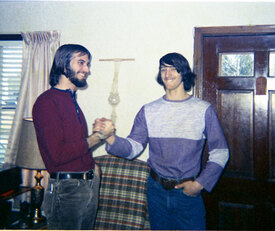 Dick and Vic c1971
Dick and Vic c1971 It happened again in my thirties, but by then I was rather cultivating the notion that had been planted in my head at twenty-five. I worked out at a gym, remained slim. I was young. I located a book (BOMC) that explained in a very hippy dippy manner, how to care for your skin naturally (with plasters of oatmeal paste, toner squeezed from a lemon). Someone said I looked happy. Sitting in a doctor’s office, I also ran across an article, in a ratty old magazine that I stole, about facial isometric exercises that strengthen the muscles beneath the face and chin. There are five exercises, and I’ve done them several times weekly since 1978, in large part, if I’m not in a hospital or on vacation.
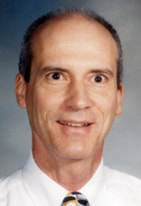 Dick, LHS Faculty Pic
Dick, LHS Faculty Pic When I obtained a new doctor in the next decade, he did a doubletake when I announced that I was sixty-nine. I thought you were more like forty-seven. Ken, attending the appointment as my advocate, snorted and rolled his eyes yet again, and I didn’t blame him. It was fatuous of me to sit there and grin. A year later, as I went under sedation for a heart ablation, a bevy of nurses gushed, You are not seventy! What is your secret? As a joke, and as my last cogent words before succumbing to the general anesthetic, I murmured, “Good clean living.” The woman’s fading voice answered: “I’m a little late for thaaaat . . . .”
I’ve neglected to mention regular movement as a major contributor to my vigor and good health. Since I’ve acquired a Fitbit watch, I try to walk between 6,000 and 8,000 (3.5 miles) steps per day. I’ve logged as many as 12,000 or 17,000 (8.8 miles) in one day while sightseeing in Barcelona, Spain. I’ve also done Pilates workouts since 2002, whose exercises have strengthened and challenged my core, toned up all my muscles. Reduced back pain because fit muscles help keep your skeletal remains aligned properly. Mostly, but you have to keep after it.
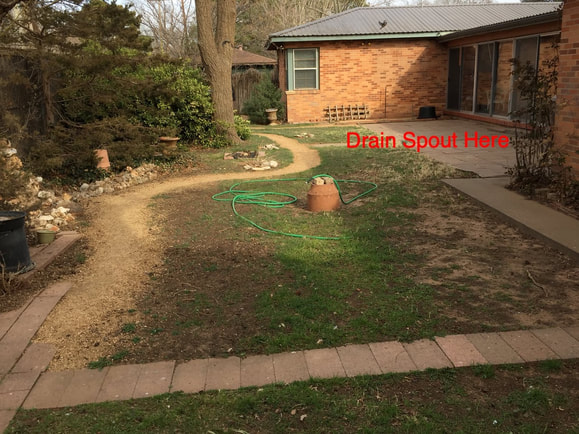 A Segment of Our Backyard Walking Trail
A Segment of Our Backyard Walking Trail On June 18, I was about to finish my walk—ten more minutes—when I tripped on a protruding drain spout. I had grazed it before and was aware of its presence, but that time I nailed it (or it nailed me), and the next thing I knew . . . I found myself face down on the sidewalk . . . the victim of gravity’s dark pull against the earth, that feeling of How’d I get here? My glasses and airpods were scattered like items at the scene of an accident—which, of course, it was. I’d been listening to The Plot Thickens, a fascinating Turner Classic Movies podcast production about the life of actor-comedian, Lucille Ball. Her whisky tenor (bass!) is still bellowing in my ear. But all I can think of is the old saw from the Bible, Proverbs 16:18. To paraphrase, “Pride Goeth before a Fall.”
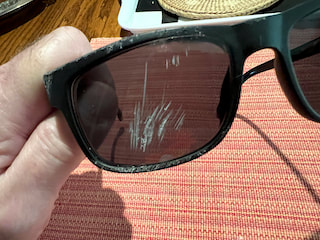
I quickly remove the shirt I am wearing and it becomes a rag, a way to stanch the bleeding (I later tell Ken to toss it in the trash, I never wish to see it again). I somehow have the wherewithal (and balance) to rise from all fours, abandon my fallen belongings and find my way inside to view myself in the bathroom mirror. This is not good, indeed. My right eyebrow is sporting a large gash in the way that a peach’s skin can sustain a gash upon falling from the tree, demonstrating really, how delicate human skin is. I inform Ken that I’ve got to get to an urgent care center ASAP (eschewing the three-hour wait at any hospital ER in town).
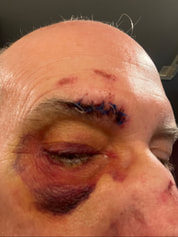
When I arrive at UMC, it is six p.m., and I’m rolled on a gurney into Trauma Unit #1. It seems as if twenty people leap upon my body at once (and in other circumstances such a situation might be rather tantalizing), but more probably the best-looking group of men and women I’ve ever seen, some medical students, some young doctors, begin to work away at me in a joint but chaotic effort. Some hands untie my shoes and remove my polka dot socks (I’m not picky about what I wear during my backyard strolls). Other hands in this kind of assault pull off my running shorts and athletic supporter (oh, really, doctor), my shirt. Next, a handsome man (even masked) in blue scrubs, a Doctor Vincent, badgers me with questions: First, my family history of diseases, and I tell him. Do I drink? Yes, socially. Socially like every day or just Saturdays? None of your business.
And then he asks me how my accident happened. Some chatty youngsters stab holes in my left arm for IV’s (at least one of them a mistake because she happens to confess), and one hole in my right arm, I suppose for a different drip yet to come. I’m turned on my left side (“One, two, three, turn), and another set of hands pounds each vertebrae, and I am to yell (to be heard above the cacophony) “No” if it doesn’t hurt with each attack. None does. I’m asked to squeeze my butt cheeks (incidentally, one of my Pilates exercises—20 squeezes per set—designed to help keep my buttocks high and perky, meh). Good job, a male voice says not entirely with sincerity. All of these things are done to me as if I'm a plastic dummy, a doll on which to practice their pin-pricking and other medical stuff—as if I am not real.
I’m turned on my right side (“One, two, three, turn) for yet another purpose. Then I’m laid flat (without getting laid) on my back again. All of these actions take place on a thin, flat board slipped between my back and the gurney. Asked if I hurt, I must amaze all concerned, instead of complaining about the mess on my head, by informing them I have four titanium screws in my spine from a previous surgery—and that that board is fucking killing me. They plaster a pain-relieving pad across my lower back, which will remain there during my entire stay, thus relieving some of the pain caused by lying in hospital beds. Because I may be cognitively challenged after the fall, I’m bombarded with even more questions that I must answer satisfactorily, because suddenly the room empties as if my ass just isn’t up to snuff for this crowd (recall, if you will, my veiled rape metaphor).
I am now moved to an Intensive Care Unit room with only a curtain to separate me from the tumult, and an Asian woman with an ESL accent takes a long history and types it into the computer. Several times she, also a student, is helped by the youngish man who heads the main desk—his being the only bitchy personality I encounter during the weekend. Until midnight, when I am moved to a regular room, I languish on this uncomfortable bed with nothing but my thoughts. Ever since I was at Star ER I’ve run through my meditation mantras, attempting to take my mind off the obvious: injury and trauma. The mantras help a little, but they are shouted down by competing thoughts of pain, thoughts about my ruined looks, thoughts of how long I’ll be spending in this life-saving but God awful place.
Finally, at midnight, after several false starts (I easily eavesdrop on the main desk phone calls), I’m moved to a regular single room, GT-392. I ask the orderly rolling me along the hallways what GT stands for because my inquiring mind (as dinged-up as it is) wants to know. He mumbles something about it just being named that way. Yet he forgets that I can read the overhead signs as we travel through this labyrinthine building, and I note “Gerontology and Trauma” printed in large letters as we near my room. Ah haaa. Yet my placement is a blessing. Gone is the puerile chatter of ICU workers. Gone is the bustle of gurneys in and out of slamming doors. Agonizing moans and screams not my own. My GT room is quiet, and for the next thirty-six hours, I am allowed to sleep except for short interruptions to take my vitals, draw yet more blood, and whatever else the staff wish to do to me or for me (I'm served several good meals). Except for a couple of plump, gray-haired female nurses, everyone else, male or female, who enters the room, seems young. But even they are plump, out of breath if they exert themselves in any way. Serving twelve-hour shifts, it seems, these faithful servants obviously have no time to work out, to keep fit. The only rather thin, short man in blue scrubs happens to be a physician from the neurology department, who deems that I shall be released later Monday morning. Everyone who has entered my room—from orderlies, to aides, to nurses and doctors—seems to take seriously the hospital motto, “Service Is Our Passion.” So unlike the private hospital a mile and a half from here, or like hospitals from my past, in which I felt lucky to get the time of day or a response to my request radioed to the nurse’s station by that walkie talkie lying next to my head.
Late Monday morning, a cute young blonde nurse named Kristina rushes around to help me prepare to check out. I ask if I can shower my smelly body, and she accommodates me by getting the trickle of warm water started in the walk-in shower (no scalding allowed here). She leaves to get my paperwork in order. It’s faster and cheaper to buy my new RXs from the UMC pharmacy, so Kristina also dispatches an aide downstairs to secure them for me: I happen to have cash to facilitate matters. After my shower, Kristina and I get my belongings together. I sign a bunch of paperwork, copies of it go in an already existing folder, and I am wheeled downstairs by the same aide to the front entrance, where Ken is waiting to pick me up.
TOMORROW: A Writer's Wit | The 1969 Stonewall Riots


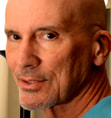

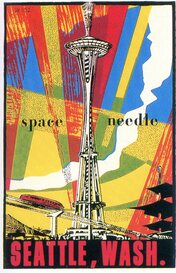
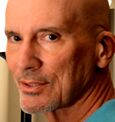

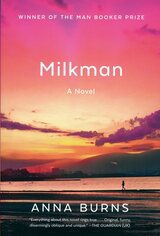
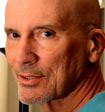


 RSS Feed
RSS Feed